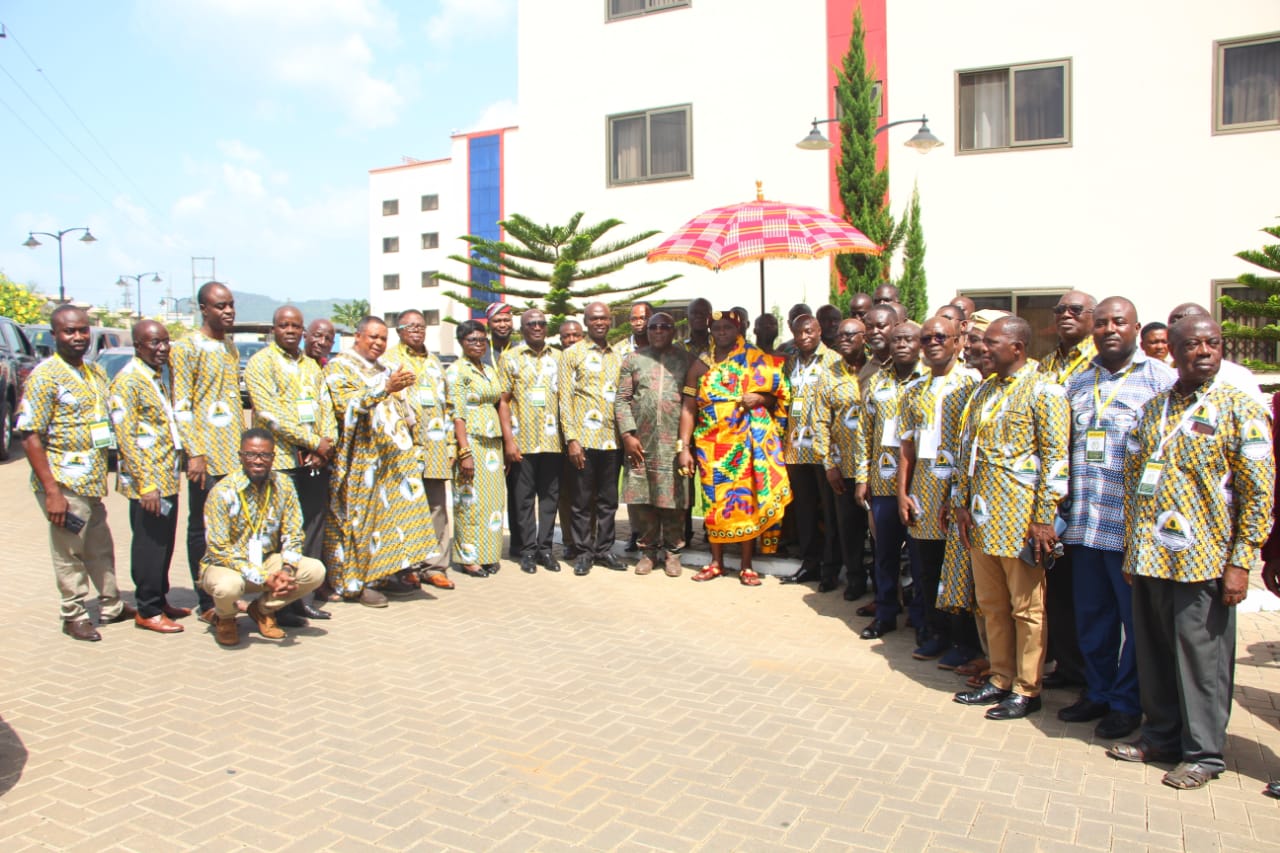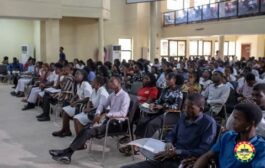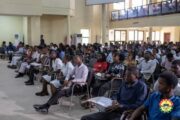Eastern Regional Minister Hon. Seth Kwame Acheampong has appealed to Rural and Community Banks(RCBs) to provide financial support to farmers in their catchment areas to help boost Agriculture and enhance food security.
The Minister stressed the agriculture sector plays a pivotal role in Ghanaian economy, adding that most RCB branches are in rural communities where the bulk of the population live and dominated by agricultural activities therefore the need to continue to fill the credit gap that exists in agricultural finance especially, small holder farmers.
Hon. Seth Kwame Acheampong said “I wish to appeal to you and here I mean rural and community banks to take advantage of the services of Ghana Incentive Based Sharing System for Agricultural Lending (GIBSAL), which was designed to be holistic and integrated system of instruments designed to de-risk lending to the agricultural sector, I am glad to note that , most of our RCBs are doing well by lending to support cocoa farmers in their catchment areas.”
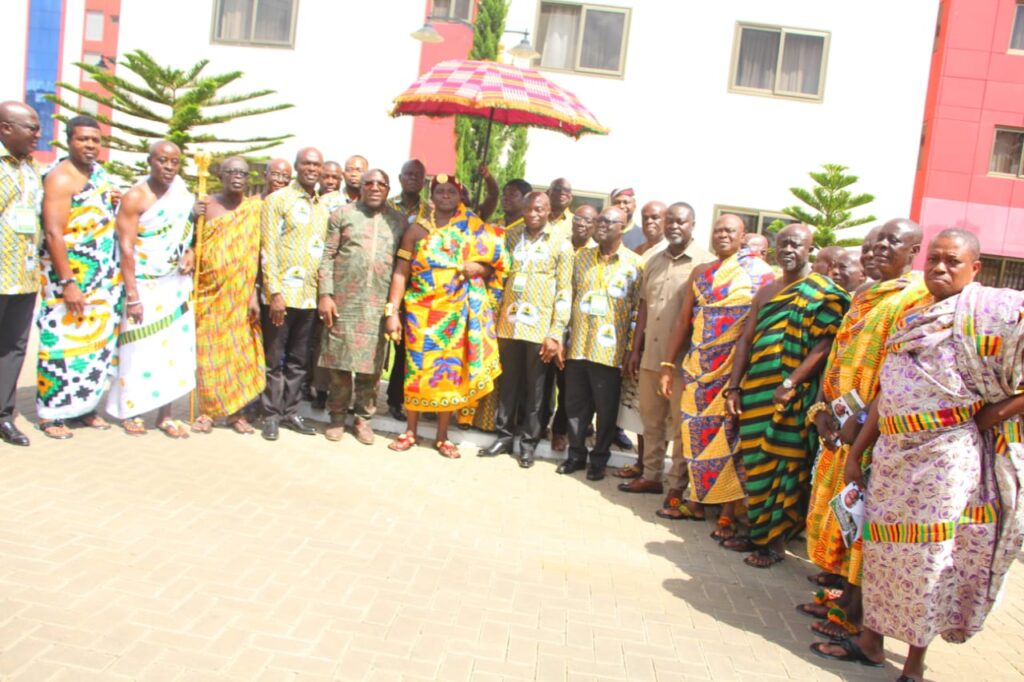
The Regional Minister said this in a speech delivered at the 22nd Biennial General Meeting of Association of Rural Banks (ARB) Ghana under the theme ” The role of Rural Banks: Growing Resilient RCBs in the Contemporary Ghanaian Economy”.
In order to help grow income of farmers and increase their yields, the Minister urged RCBs to maintain their momentum of lending financial support to the farmers.
The minister however entreated Rural and Community Banks to take advantage of the new digital and technological platform to improve the quality of service delivery to boost the confidence of customers.
He said “I believe we all know that brick and mortal banking is changing to Digitized Financial Services which offers existing and prospective banking customers convenience, flexibility and comfort.”
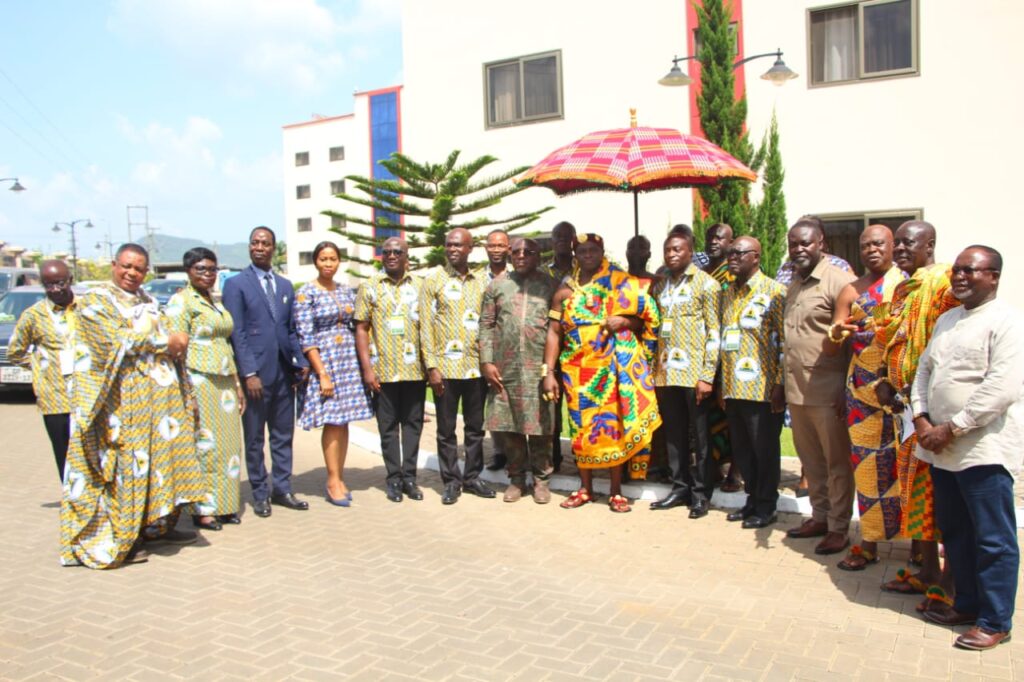
“In view of the importance of digitalization in the banking space, the Bank of Ghana and Ghana Interbank Payment and Settlement System (GIPPS) continue to introduce and also encourage Fintech Companies to develop alternative digital payment channels to make payment system cost effective and convenience for businesses and individuals.”
“According to the recent data released by the Bank of Ghana, the total value of mobile money transactions as of September, 2022 amounted to Ghc 23.6 billion, these figures underscore the fact that digitalization is revolutionizing the banking space.” The Minister said.
On behalf of the Governor of Bank of Ghana, Mr. Yaw Sapong, Head Other Financial Institutions Supervision Department (OFID) acknowledged Rural and Community Banks for immensely contributing to national development by bringing financial services to rural and deprive communities to ease access to financial services which aims to alleviate poverty in the rural areas.
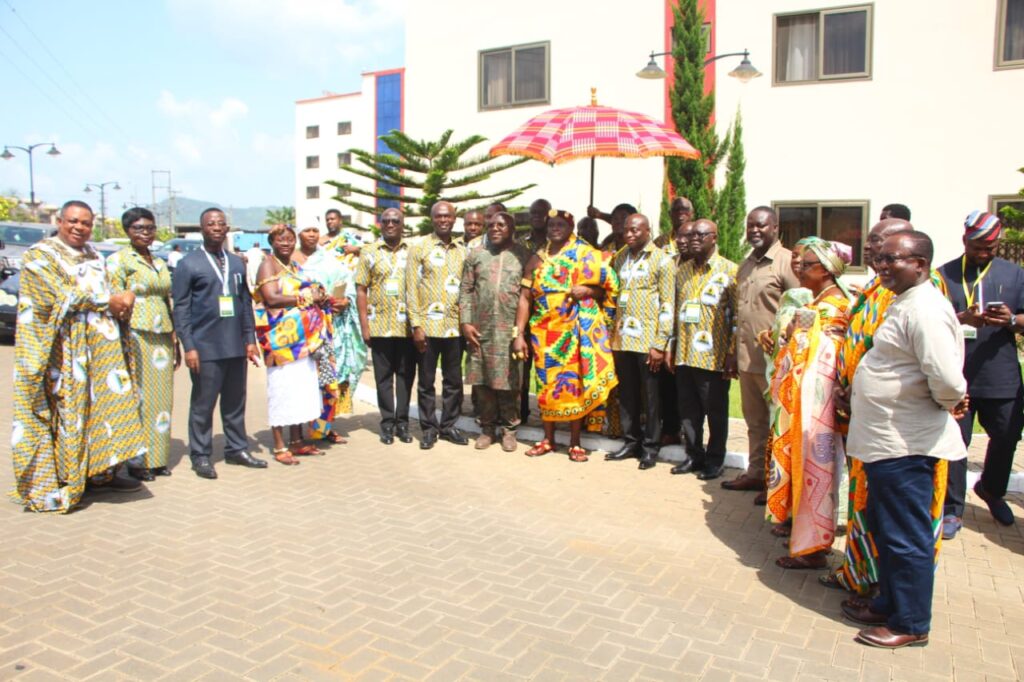
He said “on the basis of these achievements, membership of the association has increase over the years to 147 supported by a network of almost nine hundred branches across the country with 8 million depositors and over 6 million loan customers.”
“As the Rural Bank Community concept expands let’s be conscious of the missions and core values of the association particularly integrity, honesty and transparency in dealing with stakeholders especially depositors, in addition leadership of the association must also work to instill good cooperate governance practices in all it members to ensure the stability of the sector.”
“Amid the global economic challenges of slowing growth and elevated inflation levels, major central bank have resorted to policy rate increases which have instigated tightening global financing condition with spill over currency pressures, in Ghana’s case the bank Monetary Policy Committee (MPC) have been very proactive to address inflation concern, so far the MPC has raised the Monetary Policy Rate by 1,100 basis point to 24.5 from November 2021 to October 2022, additionally, the Bank of Ghana has progressively adjusted the primary reserve requirement for Universal Bank upwards from 12% to 15% in November, 2022”
“The fall out of global development and some domestic factors including solving downgrade and lack of access to external financing have exerted significant pressures on the local currency, the bank has taken several steps to boost foreign exchange liquidity supply along intensed demand pressures and continue depreciation of the local currency, these include the policy rate hikes, forward exchange rate options to critical sectors of the economy and engagement with mining and oil companies to purchase foreign exchange from the voluntary repatriation of export proceeds from these companies,” he said.
The Acting National President of Association of Rural Banks (ARB), Mr. Kwame Owusu Sekyere on his part urged the government and bank of Ghana to help RCBs to retrieve their lock up funds with some defunct existing financial institutions especially those regulated by the Security and Exchange Commission (SEC), NTC and SIC financial services, this he said has impacted adversely on profitability, network and capital liquidity ratio of member banks.
Regarding the effect of the continues depreciation of the cedi and higher inflation on RCBs, he said “according to the data released by the Bank of Ghana from January, 2022 to September 2022, the cedi has depreciated by 37.5% , 24.1% , and 27.5% against the US Dollar, the British Pounds Sterling and the Euro respectively, the headline inflation has also accelerated to 33.9% in August, 2022 from 31.7% in July, 2022 this has eroded purchasing power of households and businesses which has impacted negatively on deposited mobilization”
“high inflation hikes in utility prices and persistent increase in petroleum prices are affecting the operating expenses of our banks which may have adverse effect on profitability, we therefore urge member banks to strategize to grow higher income to manage cost efficiently so that the current challenges might not worsen our financial fortune” he said in an address.
Source: Mybrytnewsroom.com/Obed Ansah



